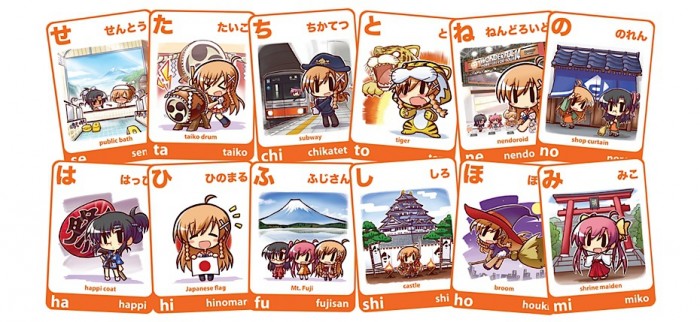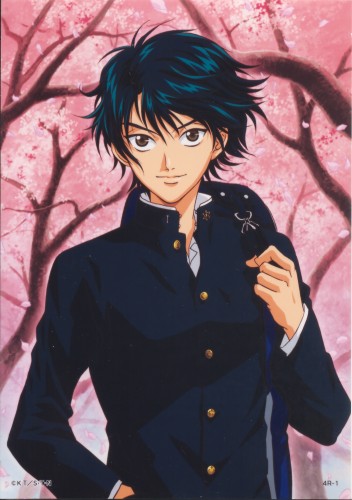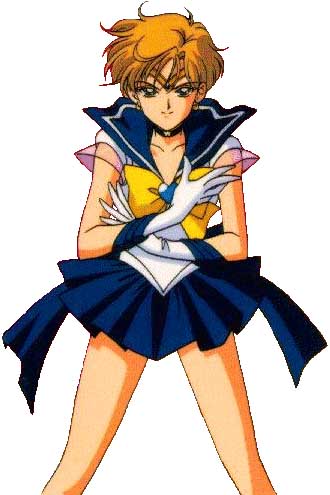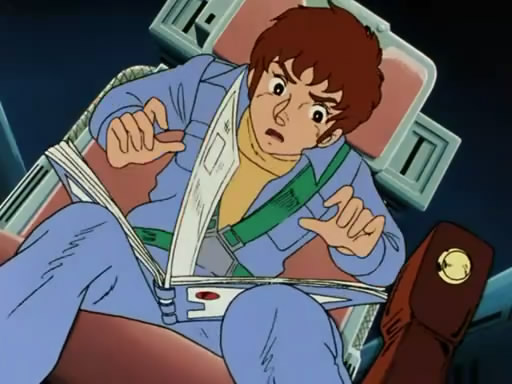
So Maybe You Picked Up A Few Things

It is a common that a significant number of foreign anime viewers have all been motivated to learn the Japanese language. I will not deny that anime (along with manga, music, video games, dramas and movies) was my foundational motivation as well. For some people, it just sounds cool, dramatic, and brings a more immersive experience. And there are those that wish to visit or live in Japan in hopes of being able to communicate with the locals.
I am sure if you've watched enough Hokuto no Ken, you could probably pick up the famous tag line of “omae wa mou ni shinde iru,” or “you're already dead” after over 100 episodes. Or if you have watched Prince of Tennis, you probably already know “mada mada da ne.” In addition, since the days of VHS fansubs from the 1990s, the suffixes of san, kun, chan, sensei and sama have been included with the character’s names if they are at all used. So I am sure many of you reading have managed to to pick up these simple basics.
Then there are also those within the fan base and more academic oriented Japanese language learners (whether they like anime or not) that discourage it for reasons ranging from it is plain silly to that it is not a useful tool for proper learning.
Why Not Just Take A Course?
For those that discourage the Japanese through anime method, the one alternative suggestion I see all the time is to take a course. I agree that taking a course under a proper instructor is the best way to go but unfortunately, not everybody has the money and/or time to take lessons at a local community college if it is offered, and if that individual is in junior high or high school, their school probably does not offer it.
Thankfully, I had that luxury starting from high school since my high school (even to this day) offers Japanese courses. I was already an anime fan as far back as fifth grade and I knew I couldn't overlook this opportunity. I was excited to take a course where I could apply it to my hobbies.
Since this was back in 1998, I was the only student in the class that actively watched anime and the likes of Toonami would not take off for another year. All of my other classmates were over achievers in honors classes who were taking Japanese to make it look good on their college applications. And here I was, the C student, the outsider and underdog.
Despite being the underachiever, things would magically take off and I will admit that by already having some exposure to the language through anime, it gave me some advantages in adapting to the flow and pronunciation (such as the no distinction between r’s and l’s), and how their syllabary is centered back to あah, い ee, うooh, えeh, お o.
So Many Ways To Say This and That, But How To Use Them?

I didn't start actively watching subs until seventh grade and a year after, I did attempt learning Japanese through subtitled editions just for the heck of it. I was never expecting to formally learn the language or ever visit Japan - let alone move there. During that phase, I was able to distinct that there were many uses of “me” and “I” between men and women.
I was able to pick up that “watashi” was universally but more commonly used by females and older people, while “ore” and “boku” were used by younger males. However, what anime will not tell the viewer is that “boku” is more formal to use while “ore” is informal.
In addition, a lot of pop songs and anime songs sung by female vocalists tend to use “boku” a lot. “Fukai Mori” and “Every Heart” from the first Inuyasha anime are perfect examples of this usage. Many of AKB48’s and Morning Musume’s hit songs are like this as well. So for some people, especially females, they may use “boku” in a conversational setting and will get strange looks.
I have seen this,happen before with an Australian female. The only female character I can think of at the top of my head that actively uses “boku” is Haruka/Sailor Uranus. And in Video Girl Ai, due to a glitch in Ai’s system, she uses “ore.”
The teacher I had in high school was some what old fashioned (despite being young, she learned from her older mother) and back then, it was very bad to use “ore” with adults (especially with teachers) but today, people are somewhat more relaxed about it. Still, you wouldn't use “ore” if you met the Prime Minister. Also, many regions in Japan have different ways of saying it. Like in Osaka, there is “wai” which is used by Sendo from Hajime no Ippo, and in Hiroshima, it is “washa” which is demonstrated in Barefoot Gen.
In addition to the many usages of “me” and “I,” I also noticed various instances of “you.” In Japanese it could be the standard “anata,” the more casual “anta,” the informal “omae,” and “kimi” which is used from superiors to subordinates and can also be used in casual relationships. Even though watching through anime can teacher a viewer the vocabulary, it doesn't necessarily teach a viewer how it is used. Just like in English, it's not what you say, it's how you say it and this applies very much in Japanese for many reasons because of the relationship a person may have with another.
In GTO and Gokusen, I hear the words for teacher as “sensei,” “kyoushi,” and “senkou” used interchangeably a lot. “Sensei” is a title towards a person (and as a suffix this also extends to doctors, lawyers and even manga authors), “kyoushi” is means to refer to being a teacher as a profession, and “senkou” is actually a Japanese delinquents way to refer to teachers in a derogatory manner.
Before moving to Japan and actually teaching high school, I thought these words were commonly used. With the exception of “senkou,” I was very wrong. I once used the word in passing during a teacher’s meeting and everybody had this big shock in their eyes. I was pulled out of the meeting by an English teacher and she explained to me that I used a bad word to refer to teachers. I couldn't use the anime/j-drama excuse because that would have sounded ridiculous.
I only understood that the word was used in an anime, but the series does not explain that it's bad and only native Japanese speakers would pick up on the context why that word is used in Gokusen and GTO. I just took responsibility and apologized to the staff and we were cool. In a way, I just pulled the “baka gaijin” card and that helped.
Amuro, Ikimasu!!!!!

In context to verb usage, Japanese has a lot of it. In a more academic setting, people are likely to learn the “masu” form, or the standard formal form. In anime, the casual use of a verb is likely to be used. For example, viewers are likely to hear “iku”meaning “go” all the time. However, in a classroom setting, you are likely to learn it as “ikimasu” and then learn “iku” maybe a year or two later.
One example of “ikimasu” being used in anime is in Gundam. Before launching, pilots will say their name and follow it with “ikimasu” to indicate they are launching. In addition, there are forms of Japanese like keigo, a more polite use of Japanese, while there is sonkeigo, the ultimate use of Japanese politeness. Lacus Clyne from Gundam SEED always speaks in sonkeigo. For example, saying “to eat” has many forms regarding situations, relationships, and politeness. The casual form is “taberu.”
Next is “tabemasu,” standard formal. Then the super formal forms become a whole different world. When you are the one eating as a guest, it is “itadakimasu.” So it can get pretty confusing.
Small But Significant Grammatical Functions
What is also very important to the Japanese language in a grammatical sense which yes and no exist in English are particles, or joshi. Basic examples of particles include wa (using the hiragana character ha), ga, wo (pronounced o), ni, to, and de. Wa and ga are probably the most commonly used particles in the language as a whole, and you are also likely to hear it in anime a lot. But what do they mean? Wa is meant to indicate the topic of of the sentence.
For example, “boku wa Justin desu,” meaning “I am Justin.” The wa refers to me. Desu means is/am/are so verbs are used at the end of a Japanese sentence as opposed to the middle like in English. In a more casual setting, people don't have to use desu and just say “boku wa Justin” and the listener will still understand.
The ga indicates the subject. For example, “boku wa anime ga suki desu” meaning “I like anime.” Once again wa refers to boku meaning I am the topic, the there is ga referring to anime as the subject, and suki desu meaning like. But you may ask yourself, “but isn't subject and topic the same?”
In Japanese, the topic refers to the sentence as a whole, while the subject is a relation to the main verb. In Japanese most of the time, you do not always have to say the full sentence. You can just say “anime ga suki desu” and it works perfectly fine. Or if you're with your closest circle of friends, “anime ga suki” is ok to use.
Another example is this, “sakana wa boku ga tabemashita.” It mean “I ate the fish.” But if you interchange sakana and boku, it means “the fish ate me.” Once again, the “wa” particle indicates the topic that does not have a grammatical relation with the verb while the word marked by “ga” does. So think of “wa” as a distinction to something while “ga” is specifying something.
Some particles can be used for various points such as “de” and “to.” “De” can mean by means of something or indicating where an action takes place. For example, “densha de ikimasu” means I go by train. But another use of de is “soko de nemashita” meaning I slept there. With “to” (pronounced toe), it means “and” and “with” and for quotations or to indicate thought or something to say.
One example is “Justin-san to issho ni mimashita” meaning “I saw it with Justin.” Another example is “Teru-kun to Yuki-kun wa futago desu” meaning “Teru and Yuki are twins. One last example of “to”is using in terms of expression of words and thought is the Slam Dunk opening theme, “kimi ga suki da to sakebitai.” Of course “kimi ga suki da” means “I like you,” and “sakebitai” means “want to shout.”
The “to” particle is to connect the “da,” the informal form of “desu” and “sakebitai” to mean that the singer wants to shout “I love you.” In Japanese that connecting particle is necessary.
Reading and Writing Are Important, Too
I think to really understand and effectively utilize Japanese, one has to at least learn hiragana and katakana, the writing systems. Hiragana is more for standard Japanese based words while katakana is used with words taken from another language. For example, sushi is written as すし in hiragana while hamburger is written as ハンバーガー or hannbaagaa in katakana. Kanji is a different beast I will not get into too much detail (it qualifies as its own article), but you can learn at your own discretion depending on your motivations and your approach.
I feel by learning their standard reading and writing systems, people can master the syntax as well. In my personal opinion, you can't really learn such a distinctive language without learning how to read and write. As opposed to an alphabet, their writing system is a syllabary based system so I feel to understand how they pronounce foreign words as well, this is necessary.
Because the characters are syllabary based, no matter how many ways lets say the name Shawn/Sean/Shaun is spelt in the English language, it is always written as ショーン、or Shoon. Or in the case of my name, Justin, and the more feminine Justine, it is still written as ジャスティン, or Jasutin. Of course reading manga is a great way to apply this. Most Shounen and Shoujo manga have hiragana accompanying the kanji characters so it helps out.
But to really master at reading (especially kanji), playing Japanese RPGs and reading Japanese newspapers are the best way to go in my experience. For writing, try getting your own calligraphy set and try practicing that way. Unfortunately, most of the time, anime viewing will not provide this opportunity except for some titles in the opening song such as Ranma ½ (written in hiragana) and Sailor Moon (written in katakana).
To Study Or Not To Study Through Anime
All I can say is, depending on who you talk to, people in Japan do find it interesting that foreigners are interested in learning Japanese because of anime. Even Aso Taro, a former prime minister (and someone who openly admits to being a manga and anime fan) was impressed with its rising international influence and Obama thanked present Prime Minister Abe for anime and manga.
However, I do feel there are numerous limitations to learning Japanese exclusively through anime. The viewer can pick up a lot of words, but it doesn't teach the viewer when and how it should be used. It will also not teach the viewer how to distinct particle usage, various regional dialects, verb conjugation and so on.
I think it is great that many of us fans want to do something productive with our hobby. But simply watching any TV program is very passive so it is probably not the best way to acquire the language but if you have the chance to take a course, it works most tool as it was for me when I took Japanese in high school and in college. A week after I started taking Japanese, I always had my notebooks, textbooks and dictionaries on hand. I would try to look at what I learned and see what I could recognize. Then if there was something that stood out to me, I would make a note of it and ask my teacher for confirmation.
Other Useful and Motivational Alternatives
I do feel by learning hiragana and katakana and by using it to read manga, it is a more pro-active approach in acquiring the language. The reader is reading it based on their knowledge and if are in a private area, try reading it aloud. Take notes of the particles, verb conjugation, and the characters personal position and relationships on why they have a particular speech pattern.
Japanese video games, especially RPGs, whether voiced or not are an effective tool. They are very interactive in a sense you do have opportunities to use Japanese in a more simulated communicative approach. If there was one game that tremendously helped me with my Japanese studies in my youth, it was the Dreamcast cult classic, Shenmue. The game has been praised endlessly of its portrayal of the Japanese environment from its neighborhoods to its shopping centers.
By playing it in the original Japanese, even though I was not a Japanese native like Ryo, I felt through him, I was in Japan myself and now living here, it was a great training tool (don't worry, I don't go out looking for sailors). I always had my textbooks, notebooks, and dictionaries handy. Plus, the game has subtitles (either all in hiragana and katakana or I could include kanji) so if I could always memo a word I didn't understand to look up and take memo of.
Of course studying through music is a fun (but not 100% the best) way of trying to master flow and pronunciation. In the Japanese broadcasts of anime, the lyrics of the ending and opening credits will have the lyrics in hard sub format at the bottom so please practice hiragana and katakana first and try reading the lyrics. You may not be a great singer but neither will most of your friends (or so I hope).
The thing is, singing gives you an active (keyword is active) chance to use the language. Cruel Angel Thesis is a huge hit at karaoke get togethers. I surprised my co-workers by singing Itoshisa to Setsunasa to Kokorozuyosa to from Street Fighter II. In fact, it was a popular song in Japan in the 90s and they were very surprised I knew that song and could sing the lyrics. I say the easiest song to start out with is Moonlight Densetsu from Sailor Moon. Maybe someday, you will be like a Saint Seiya fan from France who auditioned to be on a singing show by singing Pegasus Fantasy.
Recommended Study Materials For Those That Can't Take Courses
I say if you can't take a course, I recommend these books which can help your studies and then try to compare it with how it used in anime.
For a simple online course, I strongly recommend http://www.erin.ne.jp. It is excellently structured and organized to start from the basics and advance as you go along.
For books you can find on Amazon
Japanese For Busy People
- Basic Kanji Book Vol.1 by Chieko Kano, Hiroko Takenaka, and Eriko Ishik
- Japanese Particle Workbook by Taeko Kamiya
- A Dictionary of Basic Japanese Grammar by Seiichi Makino and Michio Tsutsui
Tablet and Smartphone apps
- J Idioms
- Learning Japanese 文法ガイド
Recommended Post
[Editorial Tuesday] English Subtitles Keeping Japanese Terms – Helpful or Problematic?
Recommended Post


